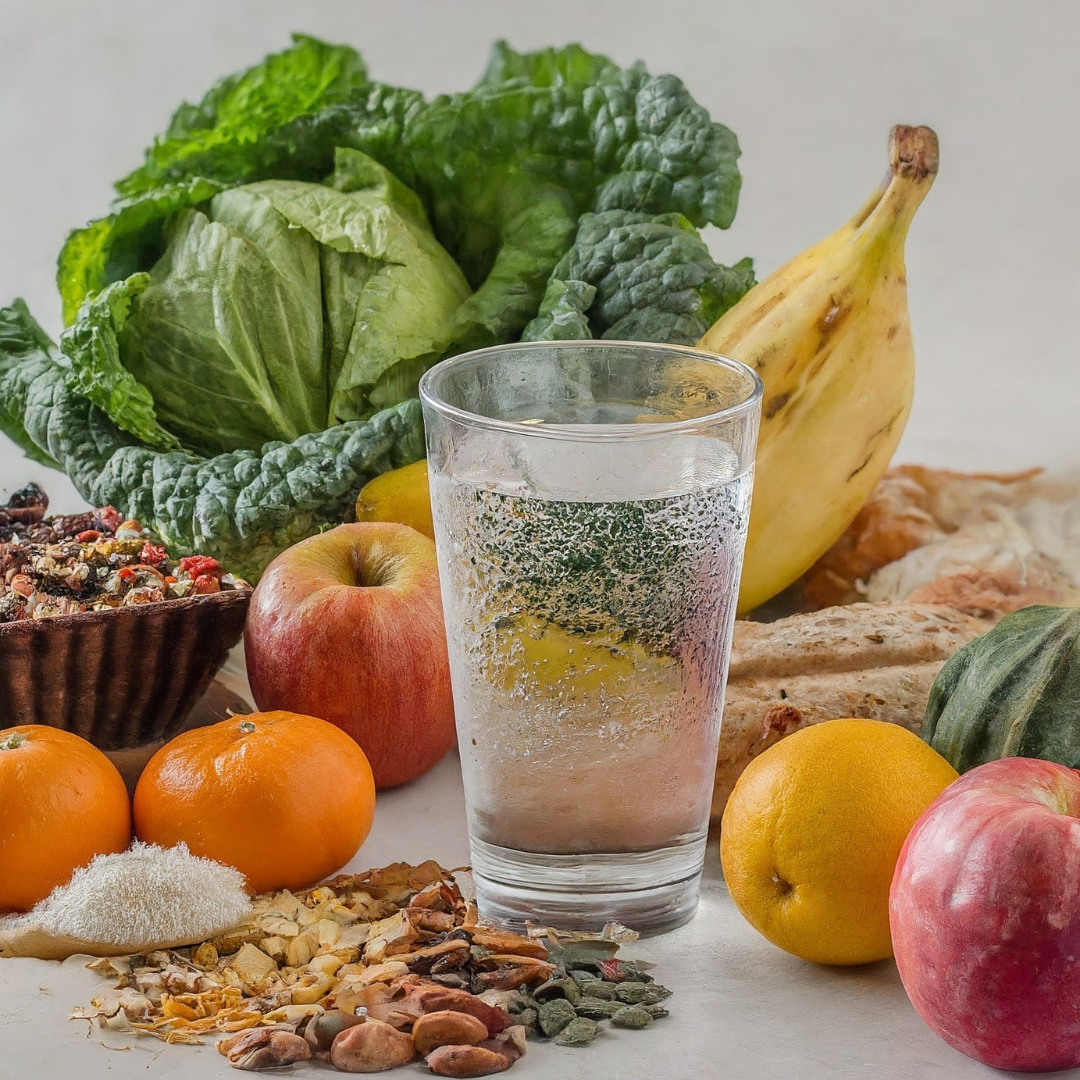Maintaining a balanced diet is essential for good health and well-being.
This article will explore the importance of balancing proteins, carbohydrates, fats, vitamins, minerals, and water in your diet.
By understanding how these nutrients contribute to our health, you can make more informed dietary choices.
The Importance of a Balanced Diet
Defining a Balanced Diet
A balanced diet consists of a variety of foods in the right proportions to provide the nutrients necessary for health. It includes adequate amounts of macronutrients and micronutrients to support bodily functions.
Relevance to Health
Keeping the right balance of nutrients can prevent chronic diseases, boost immunity, improve mental health, and enhance physical performance. It also helps in maintaining a healthy weight and promotes longevity.
Macronutrients: The Building Blocks
Proteins
What Are Proteins?
Proteins are large, complex molecules made up of amino acids that are essential for the structure, function, and regulation of the body’s tissues and organs.
Sources of Proteins
- Animal-based: Meat, fish, poultry, eggs, and dairy products.
- Plant-based: Legumes, nuts, seeds, and soy products like tofu and tempeh.
Role of Proteins in the Body
Proteins are crucial for muscle repair and growth, enzyme and hormone production, and supporting the immune system.
Carbohydrates
What Are Carbohydrates?
Carbohydrates are organic compounds that include sugars, starches, and fibers found in fruits, grains, vegetables, and dairy products.
Sources of Carbohydrates
- Simple Carbs: Sugars found in fruits, milk, and sweeteners.
- Complex Carbs: Starches and fibers found in whole grains, legumes, and vegetables.
Role of Carbohydrates in the Body
Carbohydrates are the body’s primary energy source. They are essential for brain function, physical activity, and cellular processes.
Fats
What Are Fats?
Fats, or lipids, are compounds that are important for storing energy, protecting organs, and supporting cell growth.
Sources of Fats
- Saturated Fats: Found in animal products and some plant oils.
- Unsaturated Fats: Found in nuts, seeds, fish, and vegetable oils.
- Trans Fats: Found in some processed foods and baked goods.
Role of Fats in the Body
Fats provide long-term energy, support cell growth, protect organs, and aid in the absorption of fat-soluble vitamins.
Micronutrients: Essential Vitamins and Minerals
Vitamins
Types of Vitamins
- Water-Soluble Vitamins: Includes B-vitamins and vitamin C.
- Fat-Soluble Vitamins: Includes vitamins A, D, E, and K.
Sources of Vitamins
- Vitamin A: Carrots, sweet potatoes, spinach.
- Vitamin C: Citrus fruits, strawberries, bell peppers.
- Vitamin D: Sunlight, fortified dairy, fatty fish.
- Vitamin E: Nuts, seeds, green leafy vegetables.
- Vitamin K: Kale, spinach, broccoli.
Role of Vitamins in the Body
Vitamins are crucial for immune function, energy production, blood clotting, and many other physiological functions.
Minerals
Types of Minerals
- Macro Minerals: Calcium, potassium, sodium, magnesium.
- Trace Minerals: Iron, zinc, selenium, copper.
Sources of Minerals
- Calcium: Dairy products, leafy greens.
- Potassium: Bananas, potatoes, legumes.
- Iron: Red meat, beans, fortified cereals.
- Zinc: Meat, shellfish, legumes.
Role of Minerals in the Body
Minerals support various bodily functions, including bone health, fluid balance, and muscle contraction.
The Essential Role of Water
Importance of Water
Water is vital for every cell, tissue, and organ in the body. It regulates body temperature, lubricates joints, aids digestion, and helps in waste elimination.
Daily Water Intake Recommendations
General guidelines suggest drinking at least 8 cups (64 ounces) of water a day, but individual needs can vary based on activity level, climate, and overall health.
Sources of Water
- Direct: Drinking water, herbal teas.
- Indirect: Fruits and vegetables with high water content, such as cucumbers, watermelon, and oranges.
Balancing Your Diet: Practical Tips
Creating a Balanced Meal Plan
- Proportion: Aim for a balance of macronutrients in each meal.
- Variety: Include diverse foods to cover a broad spectrum of nutrients.
- Moderation: Control portion sizes to avoid overconsumption of certain nutrients.
Meal Planning Strategies
- Breakfast: Include a source of protein (eggs, yogurt), complex carbs (whole grain toast), and a serving of fruit.
- Lunch: Combine lean protein (chicken, tofu) with whole grains (brown rice, quinoa) and vegetables.
- Dinner: Balance lean proteins (fish, beans) with healthy fats (avocado, olive oil) and vegetables.
Incorporating Snacks
Healthy snacks like nuts, seeds, fruits, and vegetables can help maintain energy levels and prevent overeating at meals.
Benefits of a Balanced Diet
Physical Health Benefits
- Weight Management: Balanced intake prevents obesity and promotes a healthy weight.
- Energy Levels: Sustained energy throughout the day.
- Disease Prevention: Reduces risk of chronic diseases like diabetes, heart disease, and certain cancers.
Mental Health Benefits
- Cognitive Function: Improves concentration, memory, and mood.
- Emotional Well-being: Balanced nutrients support overall mental health and stress management.
Challenges in Maintaining a Balanced Diet
Common Obstacles
- Busy Lifestyles: Lack of time for meal preparation.
- Dietary Restrictions: Allergies, intolerances, and dietary preferences can complicate balance.
- Economic Factors: Budget constraints affecting food choices.
Overcoming Challenges
- Meal Prep: Preparing meals in advance.
- Education: Learning about nutrition to make informed choices.
- Support Systems: Engaging with community resources or professionals for guidance.
Expert Insights
Nutritionist Advice
Registered dietitians recommend focusing on whole, minimally processed foods and maintaining a varied diet to ensure all nutrient needs are met.
Real-Life Stories
Individuals who have balanced their diets often report increased energy, improved health markers, and overall better quality of life.
Conclusion
A balanced diet is crucial for maintaining optimal health and well-being. By understanding the roles of proteins, carbohydrates, fats, vitamins, minerals, and water, and by implementing practical strategies for meal planning, you can achieve and sustain a healthy lifestyle.
Lower Risk of Heart Disease and Cancer for a Longer Life ➡️
Berry Blast Smoothie 🍓
Berry Blast Smoothie 🍓
Ready for a tasty adventure? Grab your blender, load up on fresh fruits and veggies, and dive into these 50 amazing smoothie recipes. Cheers to delicious and refreshing sips!
50 Healthy Smoothie Recipes With Nutrients To Quench Your Thirst↗️
Transform Your Dinner Routine: Explore 25 Flavorful Chicken Recipes for Every Night of the Week!















